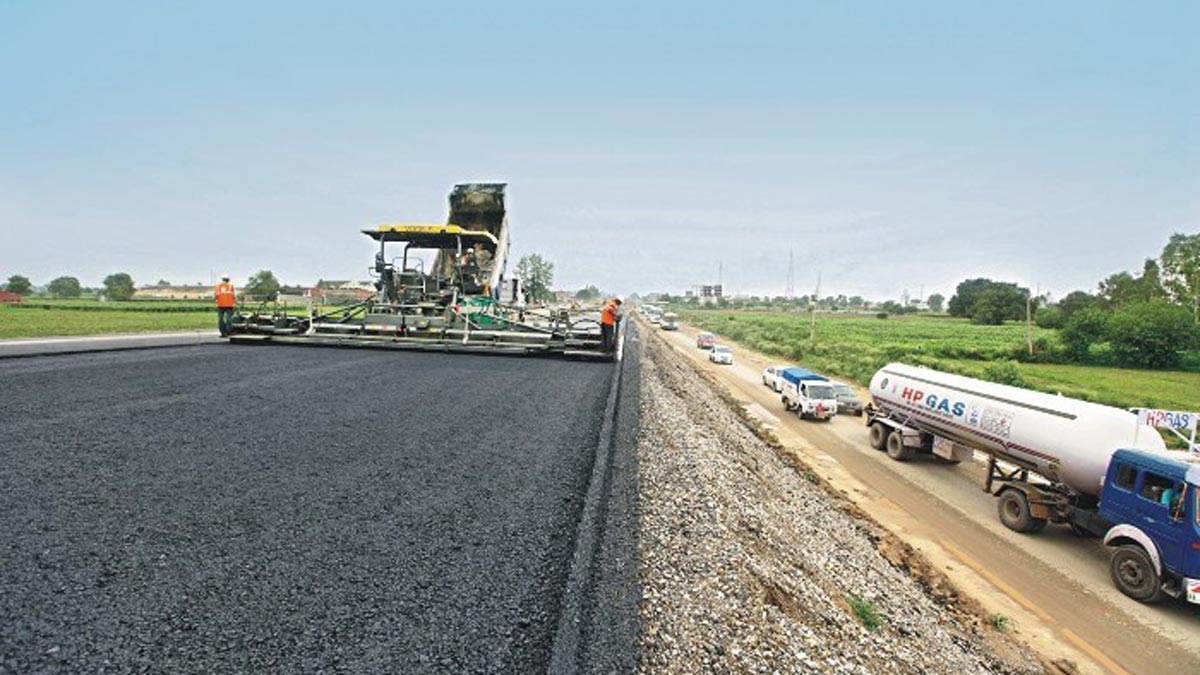- FEC Approves N185bn for Roads, N6.5bn ITF Centre
The Federal Executive Council on Wednesday approved the rehabilitation, repair and construction of 14 roads in different parts of the country.
The Special Adviser to the President on Media and Publicity, Mr. Femi Adesina, disclosed this to State House correspondents at the end of the FEC meeting presided over by President Muhammadu Buhari.
The presidential spokesman said the 14 roads would gulp N185.3bn.
The Minister of Industry, Trade and Investment, Okechukwu Enelamah, said the council approved the contract for the construction of the second phase and the completion of the Industrial Training Fund’s multi-purpose conference centre in Abuja at the cost of N6.5bn, inclusive of Value Added Tax.
He stated, “The importance of this is that the ITF is one of the most important agencies of government when it comes to vocational training and skills acquisition, and Abuja is a very important centre of training for the ITF.
“It has a training facility that can train 319 people per session. With this investment in this building, it can increase that capacity to about 1,200 per session. So, it is a fairly big facility.
“Some of the areas of interest we want to increase training include the automotive skills sector, ICT, tiling, Plaster of Paris, plumbing, GSM, welding and fabrication, refrigeration and so on.
“All these strategies are attempts to implement the Economic Recovery and Growth Plan and to diversify the economy in a way that we can bring more people to have the skills that are needed to go to work.”
The Minister of Health, Prof. Isaac Adewole, said the council approved the draft Food Safety and Quality Bill as well as the Food Safety Institutional Reform working document.
He added that with the approval of the two documents, the country would witness a reduction in the incidence of food borne illnesses through the preventive controls that were already contained in the bill.
The minister said the documents would also help to support the achievement of sustainable effective food trade that would boost and enhance the economy.
Part of the institutional framework in the bill, according to him, is to set up the Food Safety Council that will be chaired by the Vice President as well as an inter-ministerial committee that will handle food management as well as food safety in Nigeria.
Adewole said the council also approved a draft National Tobacco Control Regulation.
He stated, “Under this administration, we have recorded several successes with respect to tobacco anti-control. Precisely, early this month, Mr. President approved increases in tobacco taxes as well as alcohol.
“And then on May 23, the government approved the framework to control illegal trade in tobacco products in Nigeria. Today, the regulation that will really enable us to implement the National Tobacco Control Act was approved.”
The minister added, “The framework contains sections that have to do with general provisions of regulations like licensing, approvals, who does what, penalties etc. And more importantly, to also enable us work closely with the state.
“We believe that once this is approved by National Assembly, we will start seeing a lot of changes, effect the ban on smoke areas in the country and also you will notice different warning labels on tobacco products in Nigeria.”
The 14 road contracts approved by the council include the Gwoza-Damboa-Goniri-Ngamdu Road in Yobe and Borno states by Hajaig Construction Nigeria Limited at the cost of N34.608bn; Mayo Belwa-Jada-Ganye-Torngo Road in Adamawa by Messrs Triacta Nigeria Limited at the rate of N22.699bn; Ado-Ifaki- Otun-Kwara State border in Ekiti State at the rate of N6.002bn; and the repair of the Makurdi Bridge in Benue State by Messrs AG Visio Construction Limited for N4.617bn.

 Naira4 weeks ago
Naira4 weeks ago


 Naira4 weeks ago
Naira4 weeks ago


 Naira3 weeks ago
Naira3 weeks ago


 News4 weeks ago
News4 weeks ago
 Travel4 weeks ago
Travel4 weeks ago




 Naira3 weeks ago
Naira3 weeks ago


 Jobs3 weeks ago
Jobs3 weeks ago
 Naira3 weeks ago
Naira3 weeks ago






















